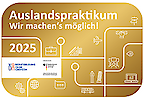Department of Epileptology
Welcome and Treatment Focus Areas:
For over 40 years, the team at our specialised centre, now led by the Director and Head of the Department of Epileptology, Professor Dr. Rainer Surges, has treated patients with newly diagnosed or chronic epilepsy, provided consultations for individuals with unclear seizure disorders, and conducted research on the causes, treatment options, and complications of epilepsy. Through the close integration of clinical care and scientific research, our centre has earned a leading international position in epilepsy and brain research since its founding.
We are a centre certified by the German Society for Epileptology, and our doctors are recognised in the top doctor rankings listed in the news magazines, “Focus” and “Stern”.
On our website, https://www.ukbonn.de/en/epileptology/ , you can find all the essential information for your visit, from how to schedule an appointment, to providing patients a checklist for inhospital treatment. We also provide detailed information on epilepsy and seizures, including our monthly podcast, "Scharfe Welle – the Bonn Epilepsy Podcast."
As part of pre-surgical epilepsy diagnostics, we assess the possibility of a safe and promising surgical procedure to treat epilepsy. The goal of epilepsy surgery is to achieve permanent seizure freedom. Before the surgery, which takes place in the Department of Neurosurgery, a comprehensive, pre-surgical epilepsy diagnostic evaluation is carried out. This includes brain imaging using high-resolution magnetic resonance imaging (MRI), several days of video-EEG monitoring, as well as neuropsychological examinations.
We conduct extensive differential diagnostics, especially when seizures have just appeared or the first attempts with medication therapy have proven unsuccessful. This helps determine whether an epilepsy is present or if the episodes are due to syncope or dissociative and functional disorders. If epilepsy is diagnosed, a thorough evaluation of the syndrome and aetiology is essential for choosing the most effective treatment strategy.
Another focus of our centre is the multimodal complex treatment for patients with difficult-to-treat epilepsy. In addition to medical treatment, patients can receive further therapeutic modules, such as physiotherapy, occupational therapy, neuropsychology, social consultations, or speech therapy. These therapeutic approaches aim to improve the overall situation and help better manage the challenges of living with epilepsy.
Over the past decades, the Department of Epileptology at the University Hospital Bonn has actively participated in major international clinical trials for the approval of new medications. As part of these studies, patients have the opportunity to voluntarily participate and gain early access to new, yet-to-be-approved medications.
Range of Services:
- Diagnosis and treatment of all forms of epilepsy
- Consultation and diagnosis after the first seizure (is an epilepsy present?)
- Introduction and optimization of seizure-suppressing medication with regard to efficacy and tolerability
- EEG diagnostics: rest-awake routine EEG, 24/48-hour, mobile long-term EEG
- Consultation regarding specific aspects (epilepsy and pregnancy, epilepsy and driving eligibility/traffic medicine, epilepsy and career selection or employment)
- Differential diagnostics: epilepsy or syncope, psychogenic, nonepileptic (functional, dissociative) seizures, parasomnias, movement disorders, including autoimmune epilepsies
- Aetiological diagnosis: What is causing the newly occurring epilepsy?
- Syndrome diagnosis: Which form of epilepsy is present?
- Invasive and noninvasive preoperative epilepsy diagnostics and epilepsy surgery (in collaboration with the Department of Neurosurgery at the University Hospital Bonn)
- Indication review for other therapy procedures (e.g, radiation therapy)
- Indication review for complimentary therapy procedures: vagus nerve stimulation, ketogenic diets
- New procedures currently under trial (e.g., cannabidiol, transcutaneous vagus nerve stimulation, new medications in clinical trials)
- Neuropsychological assessment of medication side effects in the psychiatric area (performance in speech/thought, well-being / behaviour)
- Multimodal complex treatment for difficult-to-treat epilepsy:
Change in medication and, if needed, ergotherapy, physiotherapy, neuropsychology/behavioural medicine, social consultation and/or speech/language therapy (minimum of 8 days) - Video consultations/appointments

















